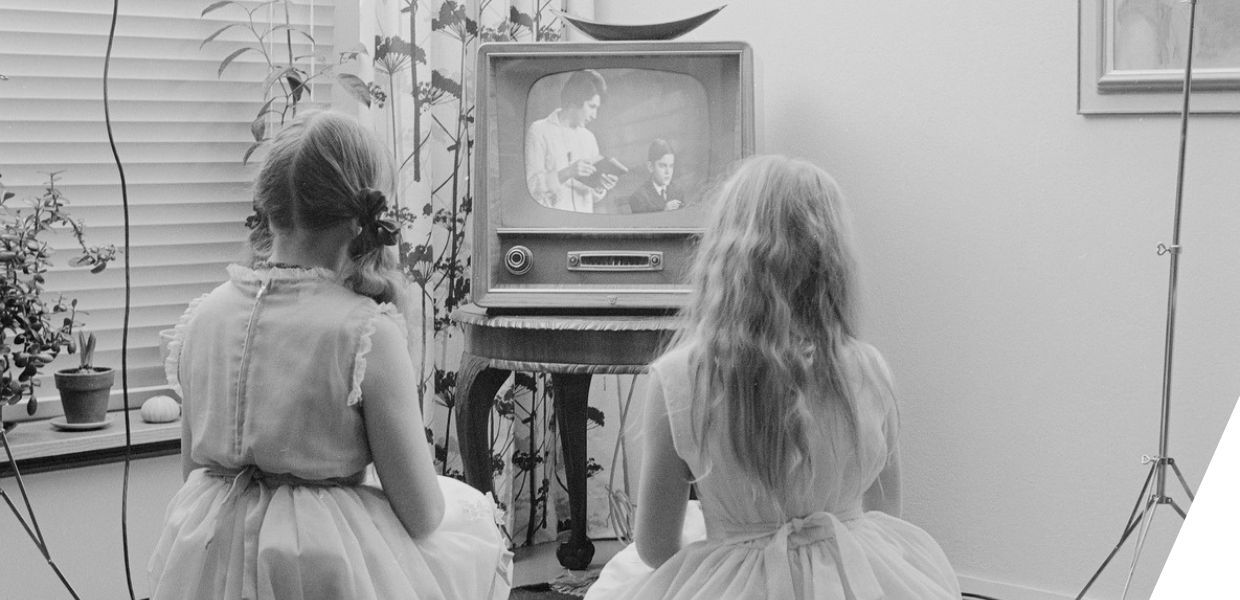About the project
Since its kick-off in April 2022, the Europeana Foundation has been participating in the Watching Videos Like a Historian Erasmus+ project, which aims to support European educators in teaching media literacy and critical thinking skills through audiovisual resources.
By equipping teachers to pass on media literacy competences to their students, the project aims to instil the ability - and confidence - in students to critically analyse digital sources and audiovisual formats, which are particularly popular and powerful among this age group. The COVID-19 pandemic and socio-political events in Europe and beyond have shown that fighting the spread of disinformation is more important than ever, and media literacy is a core factor that can help to address this challenge, especially if it is supported by trustworthy sources from archival collections.
Project partners are made up of a diverse group of audiovisual collection holders and experts in media literacy, education and assessment. The partnership is built around three European networks that represent some of the main stakeholders - educators, students and EU citizens, AV collection holders and, indirectly, policy makers. Partners in this project are EuroClio, Europeana Foundation, EUscreen, Centrum Cyfrowe, The Netherlands Institute for Sound and Vision- NISV, Webtic and Corporació Catalana de Mitjans Audiovisuals- TV3, all representing (in different capacities and areas) audiovisual collection holders, educational communities and EU citizens at large.
A toolkit and resources for educators
Some of the most important resources this project will develop include a toolkit for educators, which will offer recommendations and ready-to-use material on how to bring audiovisual resources into educational practices to promote media literacy. The project will also develop a guide for cultural heritage practitioners (audiovisual content holders) on how to unleash the potential of this type of content for educational use.
As the project works towards developing these resources, it is already undertaking research which shines the light on important questions in this area. For example, the State of the Field Report on Media Literacy supported by AV Collections by Centrum Cyfrowe analyses how AV materials are currently used for education, what challenges teachers, students, and educators face, and what can be done to overcome them. The study shows that the main barriers to use of AV materials in media literacy education are the deficit of technical equipment and pedagogical skills among educators, as well as the difficulty they have in finding adequate AV with clear permission for educational use and related teaching materials.
The report also recognises a number of stimuli that could better integrate AV in education, like proper training (on the importance of the topic itself, media literacy and searching for appropriate materials or copyright), more technical and ready-to-use pedagogical support or improved access to online collections of archival AV that feature high-quality metadata matching the Web Content Accessibility Guidelines.
In order to make this report more accessible to a wider audience it has an executive summary in English, Polish, Dutch, Spanish and Catalan.
On top of this research, project partner NISV has updated the media literacy competence framework for history education, previously developed by EuroClio, in English, Polish, Dutch, Spanish and Catalan. The framework helps to better understand what are the media literacy competencies needed in history and citizenship education, and how they are supported by audio-visual materials. This framework will also support the didactical requirements to build and add more pedagogical tools on Historiana, a free online learning environment that supports AV for history and citizenship education.
Get involved
In the coming months, the project will work to build capacity in educators through training workshops. It will also develop a dedicated module on the use of AV materials to promote critical thinking and digital literacy skills, which will be available in the 2025 edition of the Digital Education with Cultural Heritage MOOC.
If you want to stay tuned of future developments and other capacity building opportunities that will take place, follow #WatchLikeHistorians and consult the project page.



